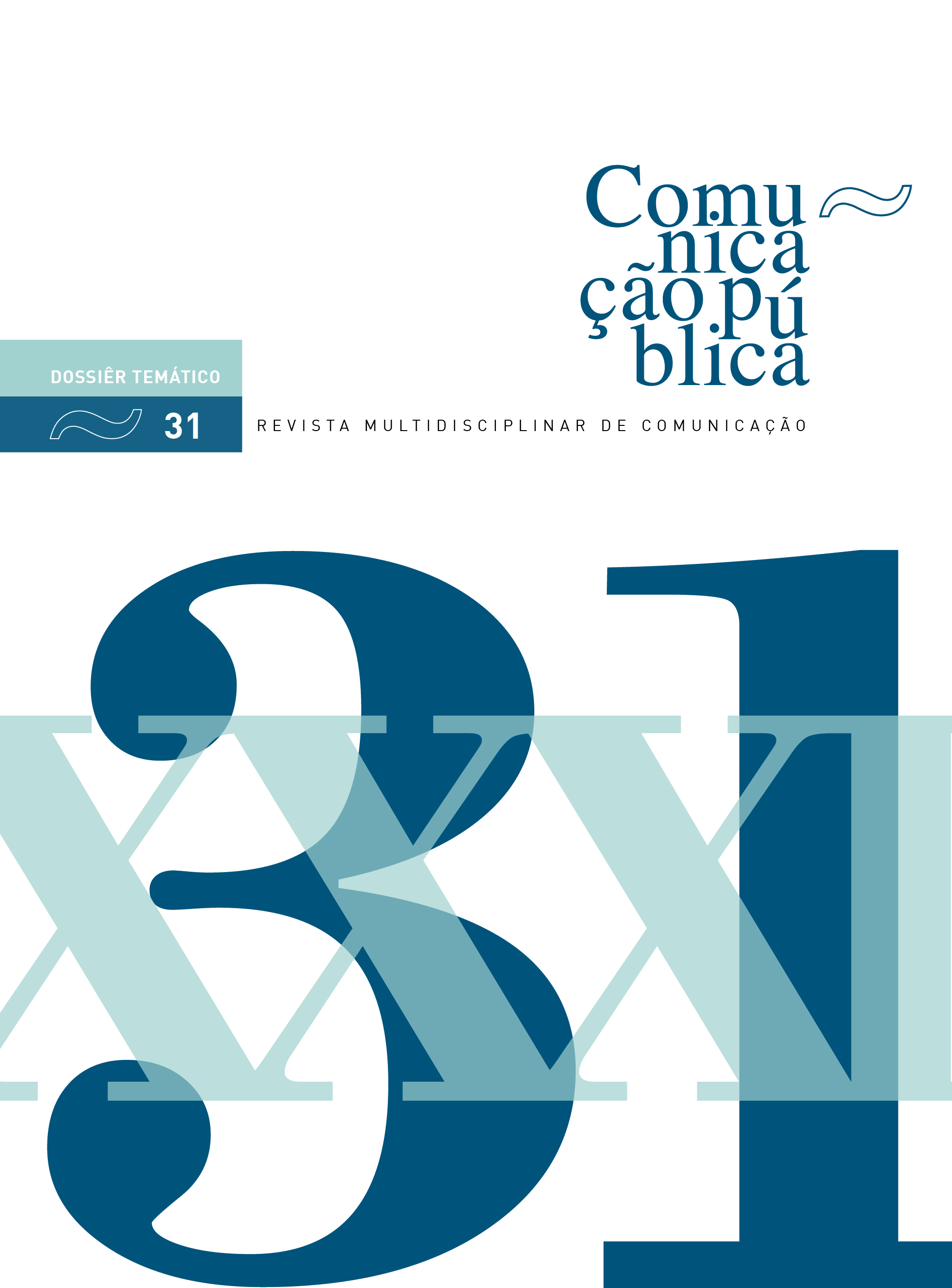Podcasters and their listeners
Affects and forms of identity engagement
DOI:
https://doi.org/10.34629/cpublica.68Keywords:
podcasts, affects, identity engagements, cultural studies, discursive formationsAbstract
In this article, we bring together disputes over the phenomenon of podcasts, especially those related to identity engagements, as a way of understanding the phenomenon and the various interests and institutions related to it. As a theoretical-methodological approach, we invested in the concept of affects, as understood by Lawrence Grossberg. Our proposal analyzes discursive formations as attempts to see clues of identity engagements related to affects around podcasters, their listeners and their practices. The disputes over podcasts, producers and listeners operate in a succession of contrasts, in a game of approximation and distance with technological aspects, institutional practices of broadcasting, the internet and the history of the podcast itself. The analytical results show the complex network of relationships that constitute podcasts as a cultural form.
Downloads
References
Berry, R. (2016). Podcasting: considering the evolution of the medium and its association with the word ‘radio’. Radio Journal: International Studies in Broadcast & Audio Media, 14(1), 7-22.
Bonini, T. (2015). The ‘Second Age’ of Podcasting: reframing Podcasting as a New Digital Mass Medium. Quaderns del CAC, 18(41), 21-30.
Caldas, F. (2018). Se gostou, dá um like: análise histórica e cultural do vlog no Brasil [Dissertação de Mestrado não publicada]. Programa de Pós-Graduação em Comunicação e Cultura Contemporâneas, Universidade Federal da Bahia, Salvador, Brasil.
Castro, G. G. S. (2005). Podcast e consumo cultural. E-compós, 4(1).
Foucault, M. (2008). A arqueologia do saber. Forense Universitária.
Ferreira, T. E. (2019). Transformações de políticas e afetos no Brasil: contextualizando radicalmente o acontecimento junho de 2013 em fluxos audiovisuais [Tese de Doutorado não publicada]. Programa de Pós-Graduação em Comunicação e Cultura Contemporâneas, Universidade Federal da Bahia, Salvador, Brasil.
Gomes, I. (2011). Raymond Williams e a hipótese cultural da estrutura de sentimento. In J. Janotti Junior & I. M. M. Gomes (Eds.), Comunicação e estudos culturais (pp. 29-48). Edufba.
Gomes, I. M. M. & Antunes, E. (2019). Repensar a comunicação com Raymond Williams: estrutura de sentimento, tecnocultura e paisagens afetivas. Galáxia: revista transdisciplinar de comunicação, semiótica, cultura, n.spe1, 8-21.
Grossberg, L. (1977). Review Essay: cultural interpretation and mass media. Communication Research, 4(3), 339-360.
Grossberg, L. (2001). Is there a fan in the house? The affective sensibility of fandom. In L. A Lewis (Ed.), The Adoring Audience: fan culture and popular media (pp. 581-590). Routledge.
Grossberg, L. (2010). Cultural studies in the future tense. Duke University Press.
Gutmann, J. (2021). Audiovisual em rede: derivas conceituais. Fafich/Selo PPGCOM/UFMG.
Janay, P. (2018). Tretas e textões em áudio: historicidades, tecnicidades e sensibilidades de podcasts brasileiros [Dissertação de Mestrado não publicada]. Programa de Pós-Graduação em Comunicação e Cultura Contemporâneas, Universidade Federal da Bahia, Salvador, Brasil.
Lopes, L. (2015). Podcast: guia básico. Marsupial Editora.
Primo, A. F. T. (2005). Para além da emissão sonora: as interações no podcasting. Intertexto, 13.
Silva, F. M. & Gutmann, J. F. (2018). De Hebe ao Encontro, o que se disputa? MATRIZes, 12(2). https://doi.org/10.11606/issn.1982-8160.v12i2p235-257
Williams, R. (1997). Television: technology and cultural form. Routledge.
Downloads
Published
Issue
Section
License
Copyright (c) 2021 Direitos do Autor (c) 2021

This work is licensed under a Creative Commons Attribution-NonCommercial 4.0 International License.
Os conteúdos da Comunicação Pública estão licenciados com uma licença Creative Commons - Atribuição-NãoComercial 4.0 Internacional.


